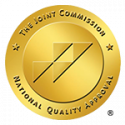There’s a strong link between poor mental health and addiction. In fact, 37 percent of those who abuse alcohol and 53 percent of those who abuse drugs struggle with at least one mental illness.
When you’re working toward sobriety, it’s crucial for you to keep your mental health in check. If you don’t, it’ll likely be harder for you to figure out how to stay sober for 30 days or more.
Listed below are some strategies that will help you achieve mental sobriety alongside physical, emotional, and spiritual sobriety.
How Addiction Affects Your Mental Health

Chronic drug or alcohol abuse can lead to a variety of short- and long-term mental health issues. Some common conditions with which addicts and alcoholics may struggle include depression, anxiety, paranoia, hallucinations, and increased aggression.
Substance abuse issues often occur alongside mental illnesses. It’s not always clear which one comes first, though.
In some cases, it’s the drug and alcohol use that triggers and presents a person’s mental health problems. At other times, a person might begin using drugs or alcohol to help “numb” their mental health issues so that they don’t feel the symptoms of their condition as strongly. For example, someone dealing with anxiety might drink alcohol in excess to dull their senses and help them feel more relaxed.
Those who use drugs or alcohol as numbing agents often find that they feel better initially after consuming them. After a while, though, when their drug of choice starts to wear off, they’ll likely find that their symptoms come back with a vengeance. This, in turn, fosters dependency and creates addiction.
How Sobriety Affects Mental Health

Most people find that when they spend 30 days sober and have a chance to give their brains and bodies a break from drugs or alcohol, their mental health improves. They experience less brain fog, they’re less depressed or anxious, and they have a more positive outlook on life. They can especially experience these 30 days sober benefits if they’re taking other steps to manage their mental health alongside removing drugs and alcohol.
At the same time, though, getting sober can also be very difficult from a mental health perspective. When researching things like “30 days sober what to expect” you’ll likely come across resources warning you to prioritize your mental health during this time, and for good reason.
Initially, when you give up drugs or alcohol, you may find that you feel more anxious, more depressed, or struggle with other exacerbated mental health symptoms. If you stick it out, though, and have a plan in place to cope with these issues properly, you can come out on the other side more resilient and mentally healthy.
How to Stay Mentally Sober
When it comes to figuring out how to stay clean for a month while also taking care of your mental health, there are plenty of strategies you can use, including the following:
Write in a Journal
Writing in a journal is a beneficial practice when you’re working toward any type of sobriety: physical, emotional, mental, or spiritual. That’s why it keeps showing up on our list of suggestions.
When you take time to write in a journal on a consistent basis, it’s easier for you to get in touch with how you’re truly feeling. Writing provides a useful distraction when temptations or cravings arise, too.
You can write in your journal about anything. Write about the symptoms you’re experiencing (depression, anxiety, mood swings, etc.), for example, or how you’re feeling about your situation in general. It might feel awkward at first, but over time, you’ll find that it’s very useful.
Identify Your Triggers
You can also use journal writing to identify and analyze your triggers. When you write about what your feelings or your particular symptoms are, also write about what led up to you feeling a particular way.
What happened before you started feeling anxious or depressed? What happened before you started feeling tempted to turn to drugs or alcohol?
When you keep track of these things, it’s easier to figure out exactly what is and is not a trigger for you. This, in turn, can help you avoid certain stressful situations while you’re vulnerable and are working toward your sobriety.
Take Time for Yourself
Make sure you’re dedicating at least a little bit of time each day to taking care of yourself. Shower and get ready for the day, even if you don’t have plans to go anywhere. Watch a favorite TV show or read a book just for fun.
Taking care of yourself will help you manage your stress more effectively and may help you to be more resilient to triggers. It will help you to find ways to cope with unhealthy thoughts or feelings without turning to drugs or alcohol for comfort, too.
Seek Social Support
It’s important to dedicate time to yourself when you’re working toward your goal of sobriety. At the same time, though, make sure you’re not spending all of your time alone.
You need social support during this time. Joining a support group like AA or spending time with friends who understand your situation can help you to feel better and find new ways to cope with the symptoms or feelings you might be experiencing.
Exercise and Eat Well
A big part of self-care and good mental health is taking care of your body. If you struggle with a condition like depression or anxiety, regular exercise and a healthy diet can make a big difference.
Find ways to exercise that feels good to you and that you enjoy. Exercise produces endorphins, which can improve your mood and help to relieve stress.
As for diet, you don’t have to adopt a super strict way of eating right now. Make an effort to limit your consumption of junk food, though, and focus on eating more fruits, vegetables, and healthy protein sources (meat, fish, eggs, beans, etc.) to fuel your workouts and everyday activities.
Create a Routine
Having a daily routine can be very helpful when you’re getting sober. It gives you purpose and structure and helps you avoid large pockets of empty time, which could lead to you giving in to cravings because you’re not sure what else to do.
If you don’t have a job, consider looking for one, even if it’s only part-time, so that you have something to fill your day. You might also want to add volunteer work to your schedule or regular meetings with friends or family members to check-in.
At the same time, try to avoid over-scheduling yourself. This could increase your stress and make it harder for you to stay sober.
Get Professional Help
Finally, don’t be afraid to seek out professional help. Consider working with a therapist to talk through your feelings and create a plan to cope with depression, anxiety, and other mental health issues in a positive, productive way.
You may want to look into an outpatient program or intensive outpatient program (IOP for short) as well. These programs can provide you with additional support and give you a chance to spend time with others who know what you’re going through.
Get Sober Today

Achieving 30 days sober from a mental health perspective definitely isn’t easy. It’ll be worth it in the end, though.
If you need help staying mentally sober, be sure to keep the tips listed above in mind. Consider participating in addiction treatment or finding substance use disorder programs near you, too. If you’re located in or around the Plymouth Meeting, PA or Sicklerville, NJ areas, contact us today Sobriety Solutions to learn more about our treatment options.
Read the rest of our series on “How to Survive Your First 30 Days Sober”
Part 1: How to Physically Stay Sober for 30 Days









